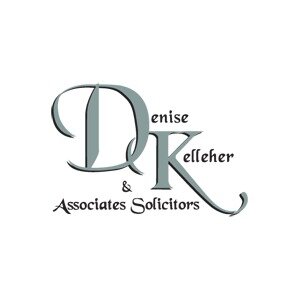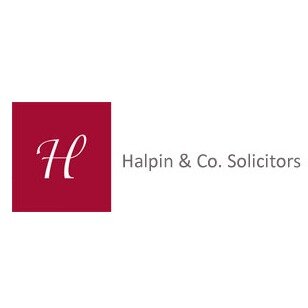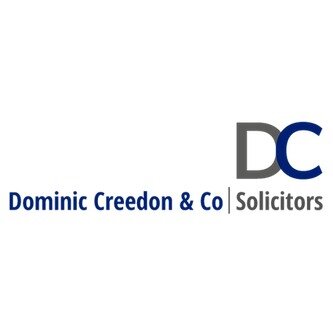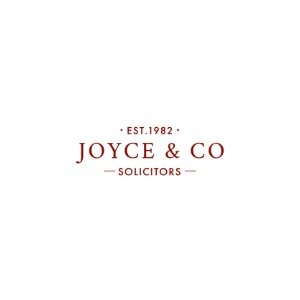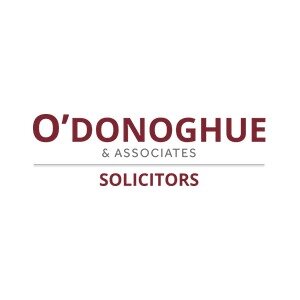Best Trusts Lawyers in Cork
Share your needs with us, get contacted by law firms.
Free. Takes 2 min.
List of the best lawyers in Cork, Ireland
About Trusts Law in Cork, Ireland
Trusts law in Cork, Ireland, encompasses the creation and management of trusts. A trust is a legal arrangement where one party, known as the trustee, holds assets for the benefit of another party, the beneficiary. Trusts can be used for various purposes, including estate planning, asset protection, and charity. The legal framework governing trusts in Cork includes statutes, common law principles, and relevant case law. It's crucial to understand the distinct types of trusts, such as discretionary trusts, bare trusts, and charitable trusts, and how they function under Irish law.
Why You May Need a Lawyer
Engaging a lawyer may be essential in several situations involving trusts, such as:
- Estate Planning: Creating a trust to manage and distribute assets according to your wishes.
- Asset Protection: Setting up trusts to protect assets from creditors or during divorce settlements.
- Tax Efficiency: Structuring trusts to achieve tax benefits for you and your beneficiaries.
- Dispute Resolution: Legal assistance during disputes regarding the validity or management of a trust.
- Trust Administration: Guidance on the roles and responsibilities of trustees and compliance with legal obligations.
Local Laws Overview
Key aspects of local laws relevant to trusts in Cork, Ireland, include:
- Trusts Act 1893: Governs the creation and administration of trusts, outlining the duties and powers of trustees.
- Taxation: Trusts may be subject to various taxes, including capital acquisitions tax (CAT), discretionary trust tax, and income tax. Proper structuring can help minimize tax liabilities.
- Trustee Duties: Trustees have fiduciary duties, including acting in the best interests of beneficiaries, managing trust property prudently, and avoiding conflicts of interest.
- Beneficiary Rights: Beneficiaries have rights to information about the trust and its administration and may take legal action if trustees breach their duties.
Frequently Asked Questions
What is a trust?
A trust is a fiduciary arrangement where a trustee holds and manages assets for the benefit of specified beneficiaries according to the terms set out in a trust deed.
What are the common types of trusts?
Common types of trusts include discretionary trusts, bare trusts, and charitable trusts, each serving different purposes and having distinct legal and tax implications.
How do I create a trust in Cork?
To create a trust, you need to draft a trust deed specifying the terms of the trust, appoint trustees, identify beneficiaries, and transfer assets into the trust. Legal advice is recommended to ensure compliance with the law.
Who can be a trustee?
A trustee can be an individual or a corporate entity. They must be competent to manage the trust's assets and willing to act in accordance with the trust deed and legal requirements.
What are the duties of a trustee?
Trustees have several fiduciary duties, including managing trust assets prudently, acting in the best interest of beneficiaries, maintaining accurate records, and avoiding conflicts of interest.
Can a trust be challenged?
Yes, trusts can be challenged on various grounds, such as undue influence, lack of capacity, or failure to meet legal formalities. Beneficiaries or other interested parties may initiate legal proceedings if there are concerns.
What taxes are applicable to trusts?
Trusts in Ireland may incur various taxes, including capital acquisitions tax (CAT), discretionary trust tax, and income tax. Proper structuring of the trust can help in tax planning and compliance.
How do beneficiaries get information about a trust?
Beneficiaries have the right to request information about the trust and its administration from the trustees. Trustees are obliged to provide relevant details and maintain transparency.
Can a trust be revoked?
Whether a trust can be revoked depends on the terms set out in the trust deed. Some trusts are irrevocable unless all beneficiaries consent to the revocation or a court order mandates it.
What happens if a trustee breaches their duties?
If trustees breach their fiduciary duties, they can be held personally liable for any resulting losses. Beneficiaries may seek legal recourse to remove the trustee and recover damages.
Additional Resources
For further information and assistance with trusts in Cork, Ireland, consider the following resources:
- The Law Society of Ireland
- The Revenue Commissioners for tax-related queries
- The Citizens Information Board for general legal information
- Chartered Accountants Ireland for tax and financial advice
- Irish Tax and Customs for tax compliance guidance
Next Steps
If you need legal assistance with trusts in Cork, Ireland, consider the following steps:
- Research and identify experienced trusts lawyers in Cork.
- Schedule consultations to discuss your situation and seek preliminary advice.
- Gather relevant documents and information related to your trust needs.
- Evaluate the advice received and choose a lawyer who best fits your requirements.
- Work closely with your lawyer to draft, review, and implement your trust arrangements.
Lawzana helps you find the best lawyers and law firms in Cork through a curated and pre-screened list of qualified legal professionals. Our platform offers rankings and detailed profiles of attorneys and law firms, allowing you to compare based on practice areas, including Trusts, experience, and client feedback.
Each profile includes a description of the firm's areas of practice, client reviews, team members and partners, year of establishment, spoken languages, office locations, contact information, social media presence, and any published articles or resources. Most firms on our platform speak English and are experienced in both local and international legal matters.
Get a quote from top-rated law firms in Cork, Ireland — quickly, securely, and without unnecessary hassle.
Disclaimer:
The information provided on this page is for general informational purposes only and does not constitute legal advice. While we strive to ensure the accuracy and relevance of the content, legal information may change over time, and interpretations of the law can vary. You should always consult with a qualified legal professional for advice specific to your situation.
We disclaim all liability for actions taken or not taken based on the content of this page. If you believe any information is incorrect or outdated, please contact us, and we will review and update it where appropriate.




